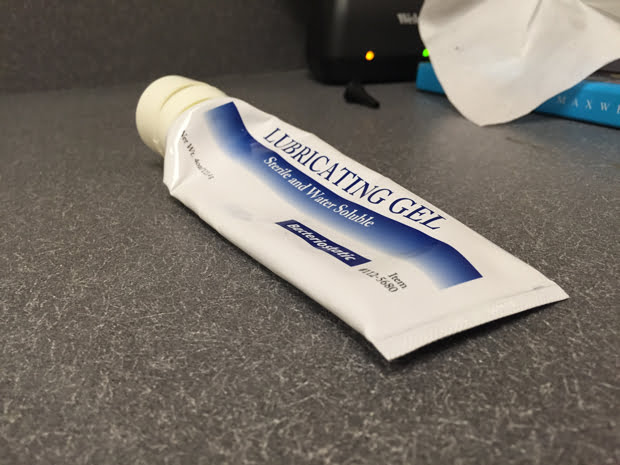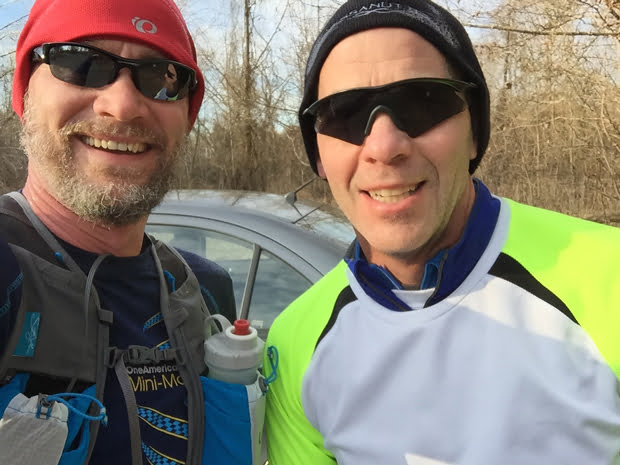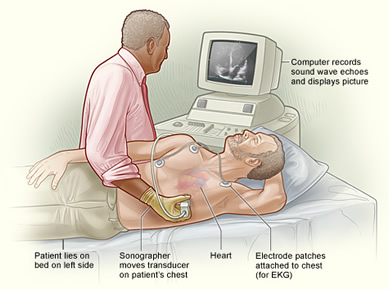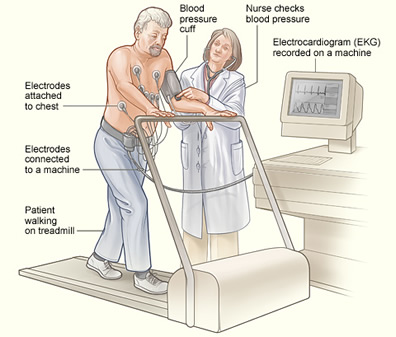After dabbling in 5Ks in the late 90s, I finally got hooked in 2005. From there, my running addiction took off. The 5K became 5 miles, then 6.2 miles, 10, 13.1, and eventually in 2007 I put away my first 26.2. A couple years ago, my friend, John, suggested I run a 40 miler.

A few more long runs and John eventually sold me on the idea. Now the trick was selling the idea to my wife. If I recall correctly, the conversation went something like:
ME: Hey, you know how I run?
WIFE: Yeah.
ME: So, yeah, well, I was thinking about running a run where I have to run a lot. Far. Where I run far.
WIFE: OK.
ME: Well, it’s not a lot. Just like 40 miles. It’s nothing really. Basically a long 5K. I’d have to train, but between now and then, there’d be plenty of time. Wow, the weather is gorgeous! Have you ever seen such a nice day? Is that a hummingbird? OMG, that is a hummingbird! Did you know that hummingbirds are…
My filibustering continued until my wife became distracted (annoyed) and left the conversation. A few weeks later she made it clear to me that she had in fact been paying attention and told me to get a physical. I agreed, passed my physical, and ran the 40 miler in the fall.
Updated Terms and Conditions
A couple years went by and I began to wonder if I could go just a wee bit further. I looked around and found a handful of 50 mile races that looked interesting. I ran the idea by my wife using the same approach as before, and she came back with a few references to me having a wife and child, how not dying is best, that I needed to get a physical, and sandwiched the whole conversation in two slices of gluten-filled guilt. With a better understanding of her concerns, I made an appointment to get a physical. Thinking I was good to go, my wife snuck in one more pre-requisite the night before my appointment:
WIFE: And a cardiologist.
ME: Huh?
WIFE: You need to see a cardiologist.
ME: OK.
WIFE: You need to make an appointment with a cardiologist.
ME: Got it.
And so began my journey to discover the length I would go to run an ultramarathon.
Getting Physical
I hit up my doc in the AM. The nurse weighed me, took my blood pressure and pulse, took some blood, and then the doctor came in to see me. She’s jabbering away, I’m asking questions, and then she stands up all nonchalant like, opens a drawer, and puts something on the counter. She then steps out of the way, heads for the door, and says she’ll be back in a moment so I can prepare myself. Prepare myself for what?

Oh dear God! I’ve spent 39 years dreading and avoiding this exact situation, and my doctor just gave me 45 seconds to get my affairs in order.
I remove my shirt and begin to deal with the denial. Socks, anger. Pants, bargaining. Boxer briefs, depression. Finally, as I put on the flower-patterned hospital gown with my backside hanging out for the world to see, I came to accept the terms of my current situation.
The doc returns, does the thing in my special place, snaps off her gloves, and proceeds to wrap up the physical exam. She says everything looks good, that I’ll get my blood work back in a couple days, that my colon was fine, and that I should come back in a year. She gives me an A+ ✮ ☺ and asks me if I have any questions.
ME: Could you refer me to a cardiologist?
DOC: I could. May I ask why?
ME: I’d like to run a 50-mile race in the fall. My wife would like to know that my chances of dying are well below average.
DOC: Sure. And since your resting heart rate is around 40 beats per minute (bpm) I’ll refer you for bradycardia.
ME: Great and thank you.
Three Things Before Moving On
First, my wife was right. I can say that because there’s almost no chance she’s going to read this far down this post, and because it’s true. I’m a 39-year-old husband and father, logging 40-60 miles a week as I train to run a 50-mile race through mountainous terrain for no other reason than to see if I can.
Second, bradycardia means that your heart beats very slowly. Most people have a resting heart rate between 60 bpm and 100 bpm. Those with bradycardia have a resting HR below 60 bpm. It’s not necessarily a bad thing. A lot of old people have bradycardia because they’re old and their body just ain’t what it used to be. But younger people can have bradycardia, too, specifically endurance athletes. And because my health insurance won’t let me go to the cardiologist without a referral, my doc used bradycardia to get me an appointment.
Third, if you’re a dude and you want to complain about a doctor putting their finger up your butt DO NOT complain to your wife or mother or any woman. Seriously. Don’t do it. Your little colon check is nothing compared to their annual lady doctor checkup. Trust me.
To recap: 1) my wife was, is, and will always be right, 2) my heart beats very slowly, and 3) my colon has been thoroughly checked.
Cardiologist Appointment Number 1
A week or so later I show up at the cardiologist, head back to the room, and the nurse takes my vitals. When she checks my heart rate, she seems puzzled at the 42 bpm she sees, and takes it again. When it comes back 42 bpm a second time she turns to me and says:
NURSE: Are you that runner?
ME: I’m a runner. I run. Around here actually. Maybe?
NURSE: No, are you that runner that is doing that really long race? Like a marathon or something?
ME: Or something.
NURSE: I read your chart. How far is it that you’re running? Like 15 miles?
ME: 50.
NURSE: FIFTY?
ME: Yeah.
NURSE: Why?
ME: Because I want to see if I can.
NURSE: Well, good luck to you, I guess.
With the meet-n-greet howdy-dos out of the way, the nurse starts sticking electrodes on my torso and connecting me to an electrocardiogram (EKG) machine. A few minutes later the EKG stops printing out its CVS-rivaling receipt, and the nurse starts unsnapping wires and peeling back electrodes. Back on my feet I’m now shoving a tube in my mouth as part of a lung function test (which is sort of like a breathalyzer without the fear of prison). I breathe in and out, she leaves, and in comes the doctor.
DOC: Hey! You must be the runner.
ME: I am.
I was starting to get the impression that there weren’t a lot of active people coming to see this cardiologist.
DOC: So…your EKG looks good. Pulmonary function looks good. I see that you have bradycardia. Nothing to worry about, usually. Most likely a result of endurance running. We’ll see.
ME: OK.
DOC: Just in case, I’d like send you home with an event monitor for the next two weeks and then bring you back in for a cardiac stress test and an echocardiogram.
ME: OK.
DOC: Laters!
We fist bump, the doc peaces out, and the nurse returns with a bag of cardiac swag filled with electrodes, a phone, some wires, and what looks like a pager.
NURSE: For the next two weeks you’ll need to wear the heart monitor.
ME: All day?
NURSE: Except for when you shower.
ME: And when I run?
NURSE: Yes, when you run, too. Unless the electrodes won’t stick then don’t worry about it.
ME: OK. And what about the phone?
NURSE: It needs to be within 10 feet of you at all times.
ME: And how does all this work?
NURSE: The electrodes go on your chest and abdomen. White here. Black here. Red down below. The wires snap on to the electrodes and then the big one plugs into the monitor. The phone communicates with the monitor and transmits the information to a 24/7 monitoring service. Replace the battery in the monitor every three days and charge the phone every night. Be sure to keep the monitor within 10 feet of the phone. If you don’t, the service will contact you. Remember, don’t get it wet. Any questions?
ME: Do you have anything smaller?
NURSE: No.
ME: Well then, I guess I’m good.
The nurse sends me on my way and I punch out of appointment number 1.
A Pager, a Phone, and a PITA
I left the cardiologist’s office wearing the heart monitor and honestly it wasn’t all that bad. The monitor clipped on my pants and the phone went in my pocket. No big deal. The next morning I got up at 5AM, put on my ultra vest, packed in the monitor and phone, and headed out the door.

About 10 minutes into my run the monitor starts in. BEEEEEEEP! Dear God! BEEEEEP! Stop it! It’s 5AM. Frogs aren’t even awake yet. BEEEEEEP! Oh come on. You’re going to wake the neighbors. BEEEEEEP! At this point I’m fumbling to get the monitor out of the bottle holder. Batteries dying? Nope. BEEEEEEP! What is that? Then I remember that I was wearing a HEART MONITOR. Most likely I was running out of the programmed target HR zone which was causing the monitor to beep. There wasn’t much I could do. I just put up with the beeping because I wasn’t going to slow down.
Then my mind wandered into the desert of worst case scenarios. What if the beeping triggered some emergency flashing siren alarm at the 24/7 monitoring company in New Jersey and my wife is getting a phone call from some annoyed hourly switchboard lady who is currently putting the fear of God into my wife about my current condition because she hasn’t gotten a raise in two years? Eh, whatever. I’ll deal with it when I get home. Thirty minutes later, worst case was not the case.

Over the next 12 days I wore the heart monitor as instructed. The first couple days were OK, then it just became a huge PITA. With each day my skin became a little more irritated by the electrodes’ adhesive. Cracking. Bleeding. Itching. By the 13th day I could take no more. I simply stopped using the monitor. You’re probably thinking, “Oh, come on. It couldn’t have been that bad.” Uh, yeah it was. I pulled my last electrode off 15 days ago and I still have a Saturn-esque scar where the electrode was stuck to my belly.
Cardiologist Appointment Number 2
I show up and the technician takes me back to a room, has me lie down, breaks out the lube, and goes to town with the handheld transducer. On my chest ya perv. She measures atriums and ventricles, records how my heart is beating, presses some keys, and sends me back out to the waiting room. BTW, the echo is really cool. It reminded me of when I saw my son’s heart beat for the first time.

A few minutes later another technician calls my name and we weave through the hallways to a dungy room at the far corner of the office building. The tech pulls back the privacy curtain to reveal a treadmill, computer, chair, and a wall of windows that appear to be sealed shut. The tech glances at the computer and says to me:
TECH: Oh, you’re that runner. The one running that race. Right?
ME: Yes.
TECH: How far?
ME: 50 miles.
TECH: Wow! This test shouldn’t be anything to you then.
Instead of saying, “Actually, this test is going to suck pretty hard. I run outside with a constant flow of fresh air. This test is going to be on a treadmill in a room with no circulation, no fan, and nary an open window.” I said,
ME: Should be fine.
TECH: OK, I’m going to start you off easy. Every 3 minutes I’ll take your blood pressure, and increase the speed and incline of the treadmill.
True to her word, the tech started me off at “Mall Walk.” Within six minutes I’m cruising at “Chasing a Piece of a Paper up a Hill on a Windy Day” speed.

Image from heartrhytmspecialistsla
Around 12 minutes the technician increases the level to “Mt. Everest with a plastic bag on my head.” Thirty seconds after that the cardiologist comes in.
DOC: You’re still running?
ME: Yes.
DOC: We usually have our senior patients run 25% grade for 15 minutes. You’re not going to get beat by an old lady are you? Hahahaha
NURSE: Hahahaha
NURSE/DOC: HAHAHAHA.
ME: ಠ_ಠ
DOC: Just kidding. If you can keep going for a little bit longer we’ll stop at 14 minutes.
ME: I’ll try.
As I gasp for fresh oxygenated air, the doc and the tech proceed to yuck it up and fill the room with their dirty exhaled carbon dioxide. That’s when I went from “I’m totally going to tough it out for 30 more seconds” to “Holy balls I’m going to die.” Not wanting to put pride before an actual fall, I called out to the doc and ended the test.
High fives all around followed by the doc’s postgame analysis.
HR good. BP good. This is good. That is good. Good good good. Then he slips in:
DOC: And, you have a slightly enlarged left ventricle and a mildly dilated left atrium.
ME: Which means?
DOC: Which means I would worry about you if you weren’t a long distance runner or if you were 25 years older. Given your fitness level and age you appear to have an “Athlete’s Heart.” Still, I’d like to follow up in a year.
ME: Which means?
DOC: That you’re fine. Your heart is in good shape.
ME: So, I’m good to run in the fall?
DOC: I don’t see any reason why you couldn’t.
And that, ladies and gentlemen, is what I have been waiting to hear.
TL;DR
So what can we take away from today’s post?
- The 5K is a gateway drug to longer distances.
- Your spouse is always right (and wonderful and beautiful and brilliant).
- Everyone needs an annual physical (which sometimes includes getting a finger up your butt).
- Runners need to get their heart checked.
- I discovered the length I would go to run an ultra.
